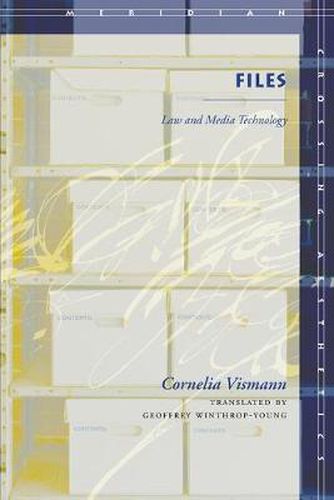Readings Newsletter
Become a Readings Member to make your shopping experience even easier.
Sign in or sign up for free!
You’re not far away from qualifying for FREE standard shipping within Australia
You’ve qualified for FREE standard shipping within Australia
The cart is loading…






Quod non est in actis, non est in mundo. (What is not on file is not in the world.) Once files are reduced to the status of stylized icons on computer screens, the reign of paper files appears to be over. With the epoch of files coming to an end, we are free to examine its fundamental influence on Western institutions. From a media-theoretical point of view, subject, state, and law reveal themselves to be effects of specific record-keeping and filing practices. Files are not simply administrative tools; they mediate and process legal systems. The genealogy of the law described in Vismann’s Files ranges from the work of the Roman magistrates to the concern over one’s own file, as expressed in the context of the files kept by the East German State Security. The book concludes with a look at the computer architecture in which all the stacks, files, and registers that had already created order in medieval and early modern administrations make their reappearance.
$9.00 standard shipping within Australia
FREE standard shipping within Australia for orders over $100.00
Express & International shipping calculated at checkout
Quod non est in actis, non est in mundo. (What is not on file is not in the world.) Once files are reduced to the status of stylized icons on computer screens, the reign of paper files appears to be over. With the epoch of files coming to an end, we are free to examine its fundamental influence on Western institutions. From a media-theoretical point of view, subject, state, and law reveal themselves to be effects of specific record-keeping and filing practices. Files are not simply administrative tools; they mediate and process legal systems. The genealogy of the law described in Vismann’s Files ranges from the work of the Roman magistrates to the concern over one’s own file, as expressed in the context of the files kept by the East German State Security. The book concludes with a look at the computer architecture in which all the stacks, files, and registers that had already created order in medieval and early modern administrations make their reappearance.